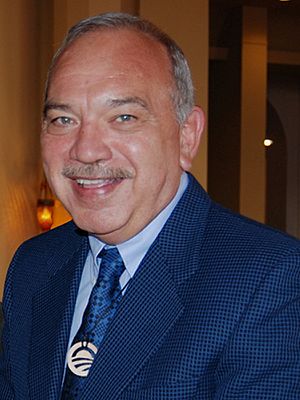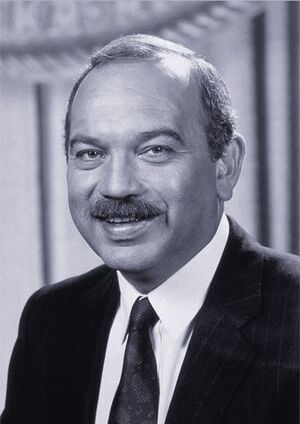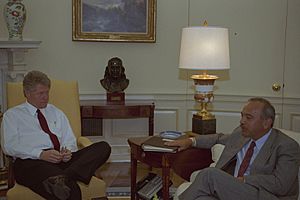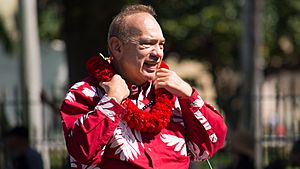John D. Waiheʻe III facts for kids
Quick facts for kids
John Waiheʻe
|
|
|---|---|
 |
|
| 4th Governor of Hawaii | |
| In office December 2, 1986 – December 2, 1994 |
|
| Lieutenant | Ben Cayetano |
| Preceded by | George Ariyoshi |
| Succeeded by | Ben Cayetano |
| 8th Lieutenant Governor of Hawaii | |
| In office December 2, 1982 – December 2, 1986 |
|
| Governor | George Ariyoshi |
| Preceded by | Jean King |
| Succeeded by | Ben Cayetano |
| Personal details | |
| Born |
John David Waiheʻe III
May 19, 1946 Honokaa, Territory of Hawaii |
| Political party | Democratic |
| Spouse | Lynne Kobashigawa |
| Children | 2 |
| Education | Andrews University (BA) University of Hawaii, Manoa (JD) |
John David Waiheʻe III (born May 19, 1946) is an American politician. He served as the fourth governor of Hawaii from 1986 to 1994. He was the first person of Native Hawaiian descent to be elected governor of any U.S. state. After being governor, Waiheʻe became a well-known attorney and lobbyist.
Contents
Early Life and Education
Waiheʻe was born in Honokaʻa on the Island of Hawaii. After finishing high school at Hawaiian Mission Academy, he went to Andrews University in Michigan. There, he earned degrees in both business and history.
He later moved to Honolulu to study law. He attended the William S. Richardson School of Law at the University of Hawaiʻi at Mānoa. He earned his law degree in 1976. Waiheʻe is also an Eagle Scout. He is married to Lynne Kobashigawa. One of his sons, John Waiheʻe IV, is also involved in public service.
Political Journey
Waiheʻe began his political career in 1978. He was a delegate at the Hawaiʻi State Constitutional Convention. He played a big part in creating the Office of Hawaiian Affairs. This office helps Native Hawaiians. He also helped make the Hawaiian language an official language of the state.
From 1981 to 1983, he served in the Hawaiʻi State House of Representatives. Later, he became the lieutenant governor of Hawaii. He served under Governor George Ariyoshi until 1986. In 2008, Waiheʻe was a delegate at the Democratic National Convention.
In 2011, Governor Neil Abercrombie appointed Waiheʻe to the Native Hawaiian Roll Commission. This group works to bring Native Hawaiian people together. This effort is now called Kanaʻiolowalu. Commissioner Waiheʻe has appeared in videos explaining this important work. He is proud of helping build Kapolei as Oahu's second major city.
Serving as Governor
John Waiheʻe successfully ran for governor with Ben Cayetano as his running mate. Cayetano became his lieutenant governor. They were re-elected in 1990. During his time as governor, Hawaiʻi saw a big increase in tourism. There was also more foreign investment, especially from Japan.
The topic of Hawaiian sovereignty became very important during his term. This was because it was 100 years since the overthrow of the Kingdom of Hawaiʻi. This was when Queen Liliʻuokalani was removed from power. Waiheʻe left office in 1994. He had served the maximum two terms allowed by the Hawaiʻi Constitution. His lieutenant governor, Ben Cayetano, won the election to become the next governor.
Life After Governorship
After leaving the governor's office, Waiheʻe worked for different law firms. These firms were based in Washington, DC. He also started his own law practice. In 2002 and 2003, he thought about running for a seat in the United States House of Representatives. This seat became open after the death of Patsy Mink. However, Waiheʻe decided not to run and supported Mink's husband instead.
See also
- List of first minority male lawyers and judges in Hawaii
- List of minority governors and lieutenant governors in the United States
 | Shirley Ann Jackson |
 | Garett Morgan |
 | J. Ernest Wilkins Jr. |
 | Elijah McCoy |




